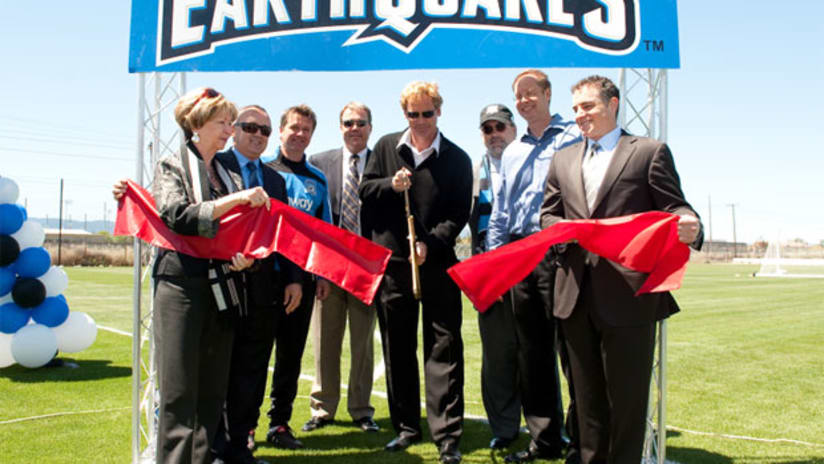Landon Donovan's stunning stoppage-time goal against Algeria, a goal that sent the US team through to the knock-out rounds and the US soccer nation into delirium, was a moment made possible by a decade of growth and perseverance.
One year Donovan was branded a phenom, winning the Golden Ball at the 1999 U-17 World Cup. The next he was a wash-out, failing to win a regular spot with German power Bayer Leverkusen. One World Cup he was the future of the game, the best young player in the tournament. The next he was one of the event's biggest disappointments, the symbol of a US team that went home winless and dispirited.
When Donovan cut his European adventure short and landed in MLS with the San Jose Earthquakes in 2001, the naysayers were loud and unapologetic. Playing in MLS would "stunt his growth." He'd find a comfort level in a league that wouldn't challenge him. He wouldn't learn how to win, how to lead, how to even compete. The nation's best young talent since Claudio Reyna was "taking the easy way out," and this would surely doom the country to third-rate status in perpetuity.
Four years later - after another brief and disappointing stint with Leverkusen - Donovan came home again. The criticism and mockery? It only got louder.
Today, those criticisms and seem impossibly short-sighted and just plain wrong. Donovan rose to the occasion on Wednesday, and after all the shouting and celebrating was done, it's clear that MLS was right there with him.
Donovan has been the face of the league for more or less his entire professional career. He learned how to win and how to lead, taking titles with both the Quakes and the Los Angeles Galaxy. He's been a key player and a leader on US teams that have won the CONCACAF Hexagonal twice on the trot. He scored two of the biggest goals in US history along the way - against Mexico in the World Cup Round of 16 in 2002, and against Brazil in the Confederations Cup final last summer - and set up countless others.
The folks who wrote Donovan off and derided him for coming back to the States to play his club ball missed the mark. Being a part of our thing here, this nascent league that has struggled for recognition and respect in both the US sports media and the world soccer media, strengthened Donovan and gave him a willingness to accept responsibility for something bigger than himself. It's the ultimate sign of leadership, the ultimate sign of growth for any soccer player.
"(To) have the chance … to come back in the prime of your career, there’s a special feeling when you play on a team where you know people are really counting on you. Your character, your personality is really at the core of how that team does,” US coach Bob Bradley said Wednesday. “Some players play their whole careers and never experience that. When you have that, it takes time to get a feel for what that’s all about. But over these years, both on and off the field, I think the fact that he’s grown and matured and accepted these types of challenges has made a huge difference.”
There are surely more challenges to come. Sometime in the next month he'll return to his league-leading Galaxy and try to get them their first MLS Cup since 2005. Over the next four years, the heart of the US team will transition to a younger generation, with the likes of Michael Bradley, Maurice Edu, Jozy Altidore and others taking the mantle.
Donovan's challenge, then, will be to help guide his teammates and avoid, in 2014, the pitfalls of 2006. And, of course, there might be the challenge of another stop with in Europe along the way.
Wherever the story goes from here, though, Donovan's choice to make his home in the States was the right one. The growth and perseverance of MLS - not only in size and recognition, but in the passion of its fans and players - has mirrored Donovan's own.
On Wednesday, they both earned the right to celebrate.


